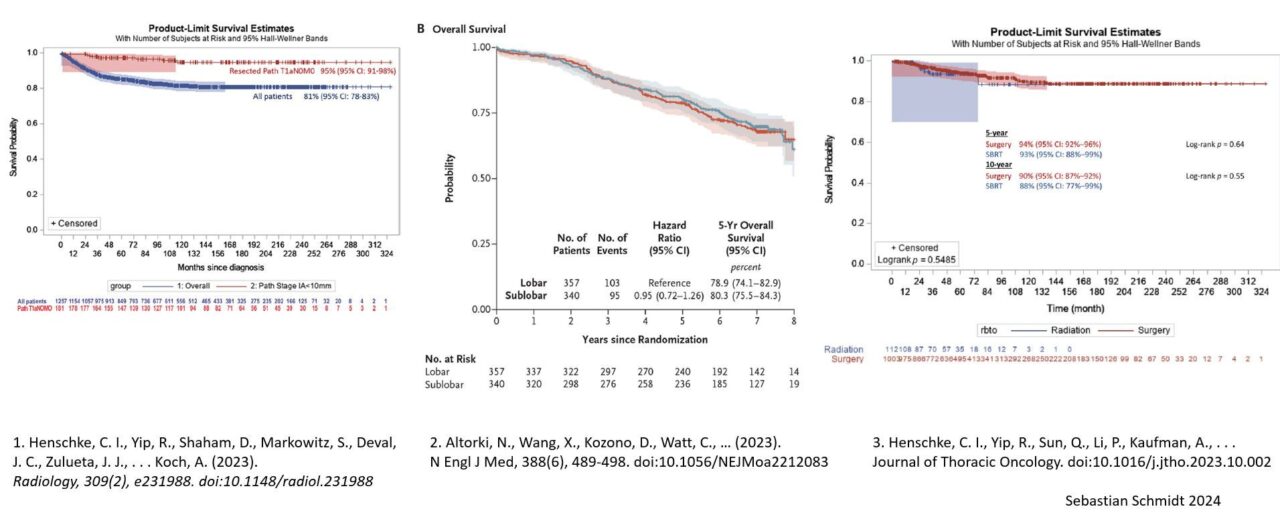Sebastian Schmidt, the Head of Strategy and Medical Affairs Computed Tomography at Siemens Healthineers, shared on LinkedIn:
“In the first two parts, I wrote about the risk of overdiagnosis in lung cancer screening programs, and why we don’t have overdiagnosis in the data from USA and Europe, if we interpret it correctly.
Of course, the real risk is not overdiagnosis, but rather overtreatment. One reason of overtreatment is obviously overdiagnosis – what you shouldn’t diagnose, you should not treat. As shown before, this is not a relevant issue in lung cancer screening .
The other kind of overtreatment is overly aggressive treatment for minor disease that should be treated less aggressively. This was a risk when lung cancer screening was started, because most experience was with later stage tumors, and most guidelines were written based on this experience.
Remember that a stage Ia tumor may have three centimeters in diameter, while a typical screen-detected cancer has 1.5cm or less. This is the 8-fold larger tumor volume and tumor mass. Newer guidelines reflect this with splitting into Ia1, Ia2 and Ia3.
This was sort of a hen-and-egg problem: Before screening, too few people were diagnosed in Ia1, which made it challenging to do good treatment studies. Now that is solved.
2023 brought great progress in this – I would like to point towards three pivotal studies, all from the International Early Lung Cancer Action Program (I-ELCAP) team around Claudia Henschke, David Yankelevitz, Rowena Yip and many others. This is not surprising – as pioneers in lung screening, they care for a very large cohort of screened people for a very long time (they have both the hen and the egg).
1. The 20 year follow-up (DOI: 10.1148/radiol.231988) – this showed us that non-solid nodules can be followed-up over a longer period of time with longer intervals. See also Javier J Z. recent post on this
2. The CALGB140503 study of Altoki et al (DOI: 10.1056/NEJMoa2212083). This taught us that for many screen-detected cancers, sublobar resection is the better choice. This is especially important if you consider the chance of secondary cancers. Together with modern video-assisted and robotic surgery, this offers treatment with very low morbidity. Meanwhile we start seeing resections where patients walk out of the OR on their own feet – compare this to lung cancer operations before screening!
3. The recent results on stereotactic radiotherapy of Henschke et al (DOI: 10.1016/j.jtho.2023.10.002) – this confirmed that for many patients, SBRT can be an option with similar outcomes.
These three publications together will transform treatment of screen-detected lung cancer, making it a disease that can be treated with minimal treatment-related morbidity.
What’s now to be done is to reflect this in guidelines. At the moment, not all lung cancer guidelines have separate treatment recommendations for small, screen-detected lung cancer. Differentiation between small (Ia) and really small (Ia1) should become standard.”

Source: Sebastian Schmidt / LinkedIn
You may read also:
Sebastian Schmidt: Overdiagnosis in Lung Cancer (Part 1) – is it real? And is it a problem?
Sebastian Schmidt: Overdiagnosis in Lung Cancer (Part 2) – warning signs in real-world evidence
